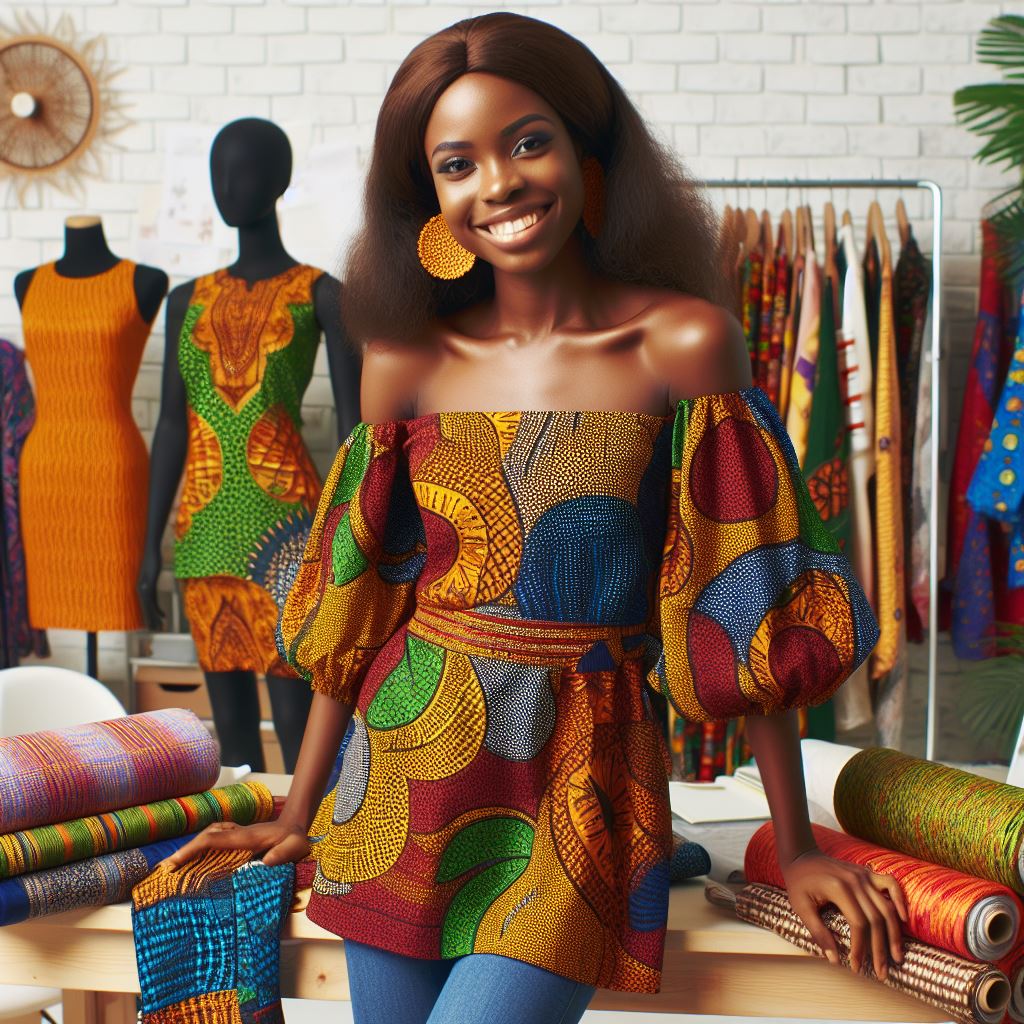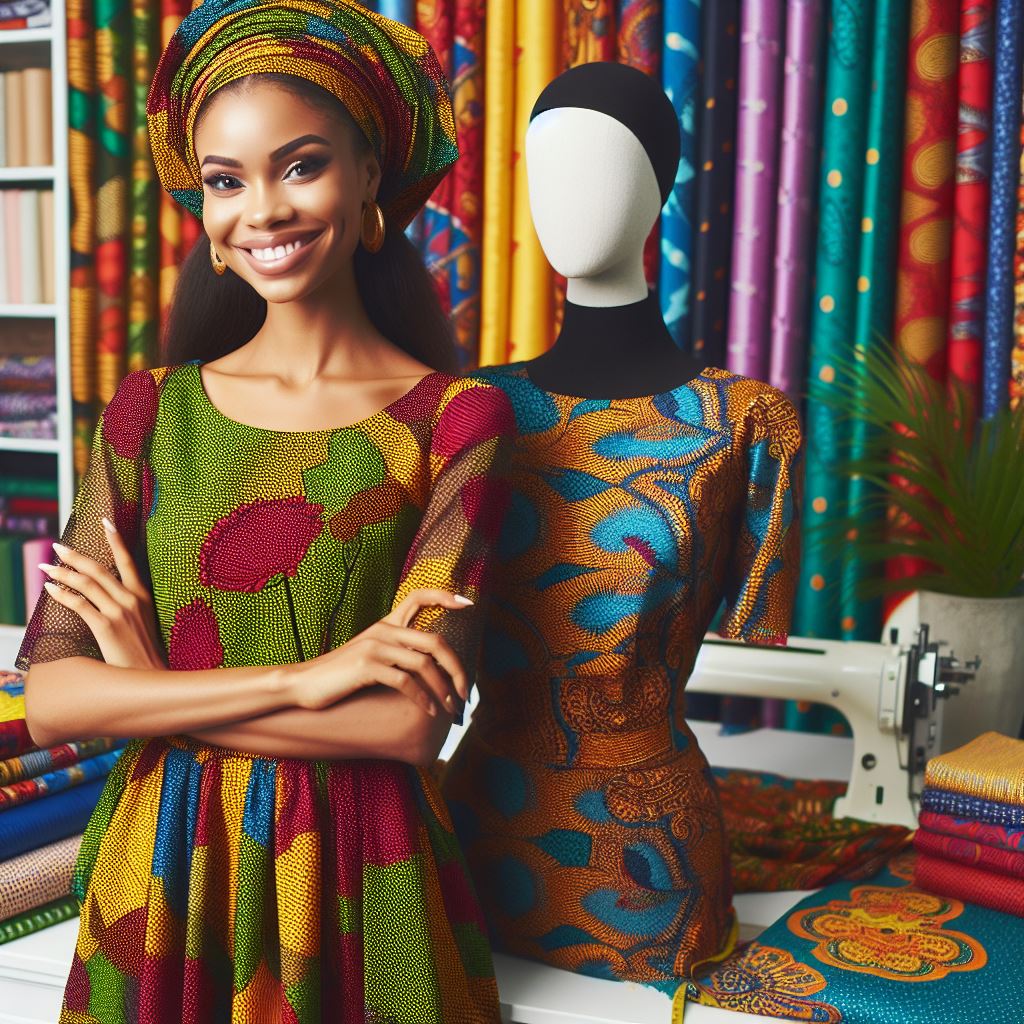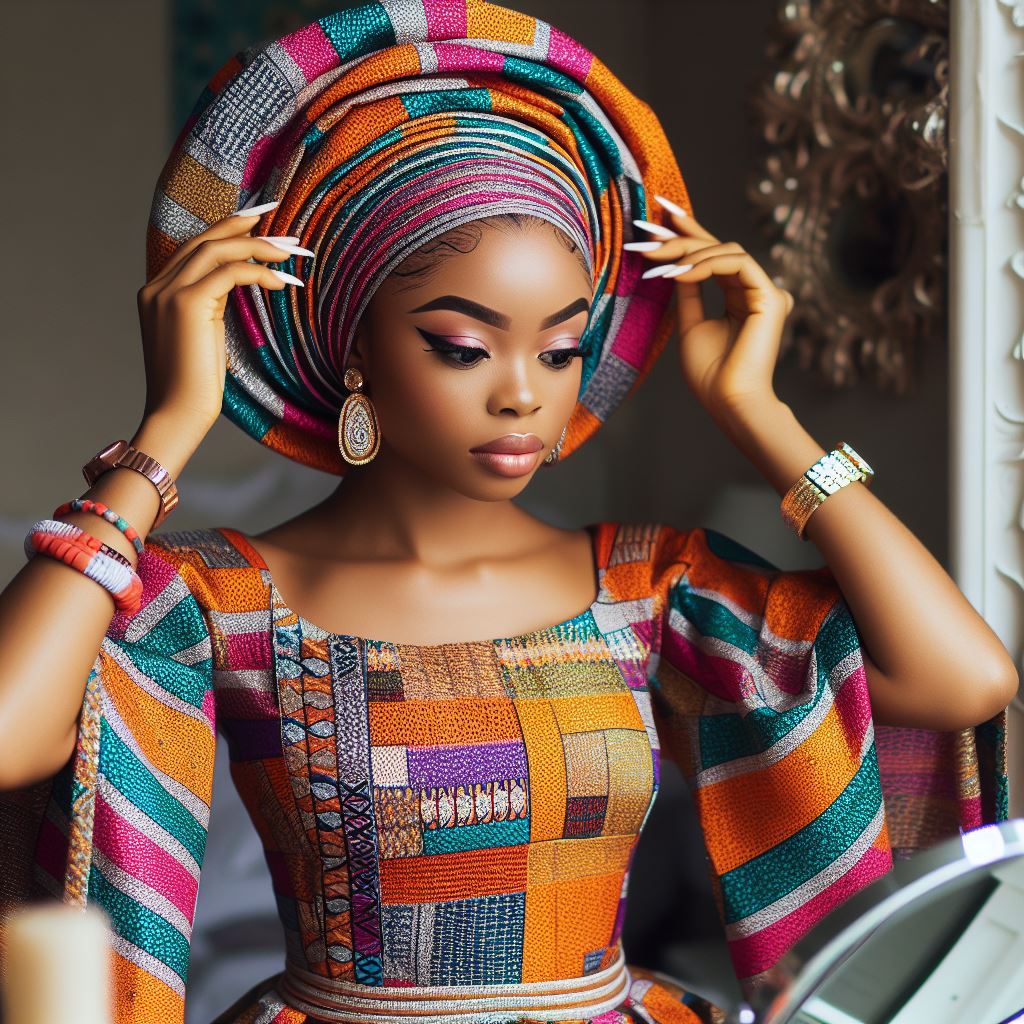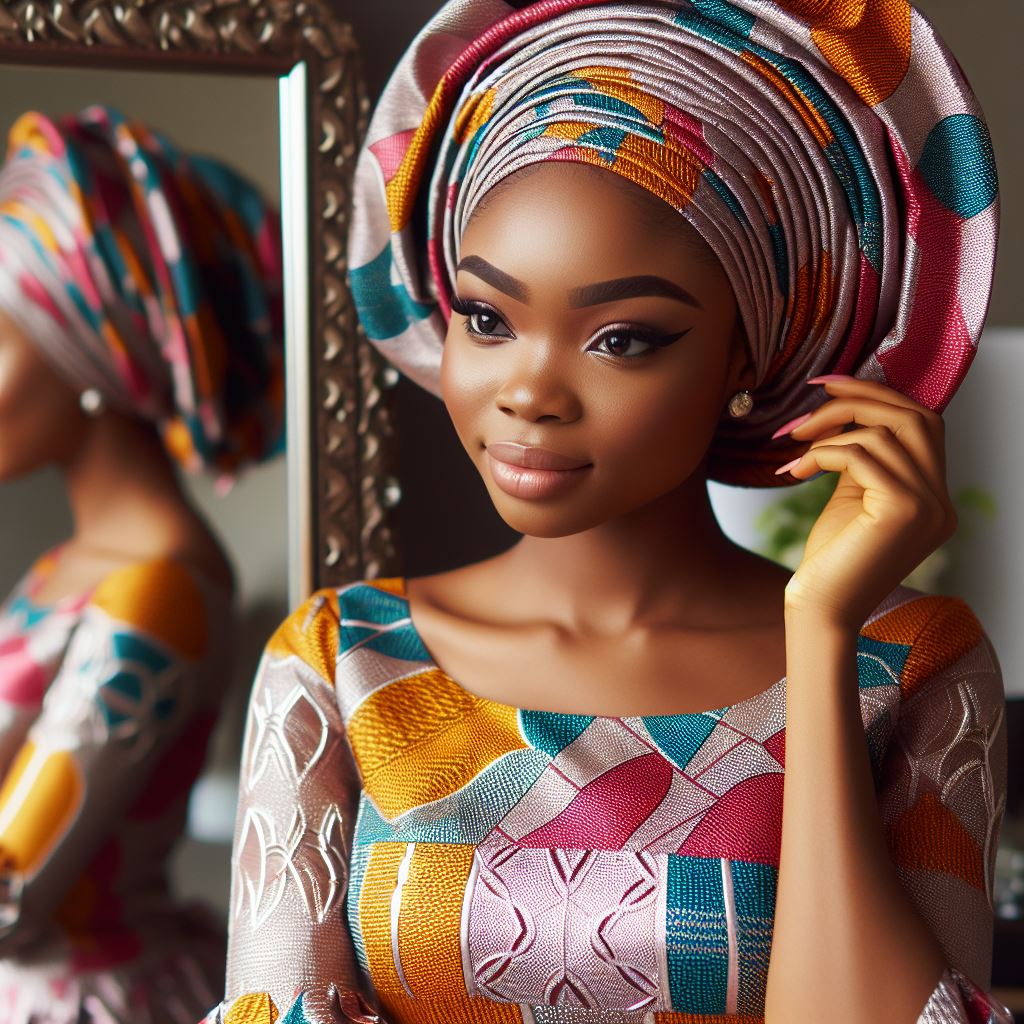Introduction
Sustainable fashion is an approach to design, produce, and consume fashion in an environmentally friendly and socially responsible manner.
It focuses on reducing the negative impact on the environment and promoting fair labor practices in the fashion industry.
Importance of Sustainability in Fashion Industry
Sustainability is crucial in the fashion industry to address issues such as pollution, waste, and unfair labor practices.
By adopting sustainable practices, fashion brands can reduce their carbon footprint and contribute to a cleaner environment.
Sustainable Fashion Trends and Practices in Nigeria
Nigeria, as a developing country, is embracing sustainable fashion trends and practices to promote ethical and eco-friendly fashion.
Local designers are incorporating traditional African fabrics, such as Ankara, into their collections to promote cultural heritage.
There is a growing demand for sustainable fashion in Nigeria, with consumers becoming more conscious of the impact of their clothing choices.
Brands in Nigeria are using recycled materials, organic fabrics, and implementing fair trade practices to reduce environmental impact.
Overall, sustainable fashion trends and practices in Nigeria are gaining momentum, creating a positive shift towards more responsible fashion consumption.
The Current State of Sustainable Fashion in Nigeria
Sustainable fashion in Nigeria is experiencing a transformative surge, buoyed by a burgeoning consciousness regarding environmental conservation and ethical consumption.
Consumers, designers, and industry stakeholders collectively strive to foster a more sustainable and responsible fashion ecosystem.
Overview of the Fashion Industry in Nigeria
Nigeria’s fashion industry stands as a vibrant tapestry woven with cultural richness and creative ingenuity.
Nigerian fashion encompasses a spectrum of styles, reflecting the nation’s dynamic identity and diverse influences.
Existing Sustainable Fashion Practices
Within this vibrant landscape, a cohort of forward-thinking fashion brands is spearheading sustainable practices.
These trailblazers prioritize ethical sourcing of materials, opting for eco-friendly alternatives and championing fair labor practices.
Through their commitment to sustainability, they not only minimize the industry’s environmental impact but also contribute to social responsibility and community empowerment.
Challenges Faced in Implementing Sustainable Fashion
However, the journey towards sustainable fashion in Nigeria is not without its hurdles.
Limited access to eco-friendly materials and sustainable production facilities poses significant challenges for designers seeking to align their practices with environmental principles.
Moreover, fostering a culture of conscious consumption requires addressing misconceptions and educating consumers about sustainable fashion.
In navigating these obstacles, collaboration emerges as a key driver of progress.
Fostering partnerships among designers, policymakers, and industry players enables Nigeria to promote sustainable practices in the fashion supply chain.
Moreover, initiatives aimed at incentivizing sustainable fashion, such as grants and subsidies for eco-friendly production, can catalyze innovation and accelerate the transition towards a greener industry.
Basically, sustainable fashion in Nigeria is not merely a trend but a pivotal movement towards a more ethical and environmentally conscious industry.
Embracing sustainable practices allows Nigeria’s fashion ecosystem to chart a course towards a brighter future.
Collaborative efforts and unwavering commitment can empower Nigeria’s fashion industry to redefine global sustainability standards.
Read: Famous Nigerian Alumni of Communication Arts Programs
Sustainable fashion trends in Nigeria
As the fashion industry continues to grow in Nigeria, the trend towards sustainable fashion is becoming increasingly popular.
Consumers are becoming more conscious of the impact that their purchasing decisions have on the environment, leading to a shift towards more sustainable practices.
One of the key sustainable fashion trends in Nigeria is the use of organic and locally sourced materials. Nigerian designers incorporate eco-friendly fabrics like cotton, silk, and leather, reducing the garment’s overall carbon footprint.
Another popular trend is upcycling and repurposing old clothing items into new, stylish pieces. This not only reduces waste but also adds a unique and creative touch to the design, making it more appealing to the fashion-conscious consumer.
Popular sustainable fashion trends in the country
Some of the popular sustainable fashion trends in Nigeria include the use of traditional African prints and motifs in modern designs. This fusion of traditional and contemporary elements creates a unique and culturally rich aesthetic that appeals to a wide audience.
Additionally, ethical fashion practices such as fair trade and supporting local artisans are gaining momentum in the Nigerian fashion industry. By promoting transparency and accountability, designers are able to create a more sustainable and socially responsible supply chain.
Efforts to reduce water and energy consumption in the production process are also becoming more prevalent in Nigerian fashion brands.
Designers are implementing innovative technologies and practices to minimize their environmental impact and create a more sustainable business model.
Examples of Nigerian fashion brands incorporating sustainability
Several Nigerian fashion brands have emerged as leaders in sustainable practices, setting an example for the industry. Brands such as Maki Oh, Lisa Folawiyo, and Orange Culture have adopted eco-friendly materials, ethical production practices, and fair trade principles.
Maki Oh, for instance, uses locally sourced fabrics and traditional Nigerian techniques to create timeless pieces that celebrate the country’s heritage.
Lisa Folawiyo incorporates handcrafted embellishments and environmentally friendly materials to design luxurious and sustainable garments.
Orange Culture focuses on gender-neutral clothing and works with local artisans to produce high-quality, ethically made garments. These brands are not only at the forefront of sustainable fashion but also showcase the creative talent and cultural diversity of Nigeria.
Influence of traditional Nigerian fashion on sustainable practices
The rich heritage of traditional Nigerian fashion plays a significant role in influencing sustainable practices in the industry.
Inspired by traditional garments, designers incorporate natural fibers, handcrafted techniques, and intricate detailing into their modern creations.
Drawing inspiration from traditional Nigerian fashion, designers create unique and culturally relevant pieces resonating with consumers.
This fusion of tradition and sustainability not only preserves the country’s rich heritage but also promotes eco-friendly practices in the fashion industry.
In review, sustainable fashion trends in Nigeria are on the rise, driven by a growing awareness of environmental issues and a desire for ethically produced clothing.
By embracing eco-friendly materials and ethical production practices, Nigerian fashion brands lead toward a sustainable industry.
Read: Impact of Communication Arts on Nigerian Media
Sustainable fashion practices in Nigeria
Nigeria is increasingly embracing sustainable fashion practices that prioritize environmental and social responsibility. The fashion industry in Nigeria is evolving to incorporate eco-friendly materials, local production techniques, and ethical practices to promote sustainability.
Eco-friendly materials used in Nigerian fashion
- Organic cotton: Many Nigerian fashion designers are using organic cotton, which is grown without the use of harmful chemicals, pesticides, or genetically modified organisms.
- Bamboo fabric: Bamboo is a sustainable material that grows rapidly and requires minimal water and pesticides to cultivate, making it an eco-friendly choice for clothing production.
- Hemp: Hemp fabric is known for its durability and sustainability, as it requires less water and land to grow compared to traditional cotton.
- Recycled materials: Nigerian designers are incorporating recycled materials like plastic bottles, denim, and polyester into their designs to reduce waste and promote sustainability.
Local production techniques promoting sustainability
- Handmade crafts: Nigerian artisans are using traditional weaving, dyeing, and embroidery techniques to create unique and sustainable fashion pieces that celebrate local culture and heritage.
- Upcycling: Designers in Nigeria are transforming old and unused fabrics into new garments, accessories, and home decor items, giving new life to materials that would have otherwise been discarded.
- Zero-waste design: Some Nigerian designers are adopting a zero-waste approach to fashion design, where they minimize fabric waste by creating patterns that utilize the entire material without cutting excess.
- Small-batch production: By producing clothing in small batches, Nigerian fashion brands can reduce excess inventory, minimize waste, and ensure better quality control over each garment.
Ethical practices in the Nigerian fashion industry
- Fair trade: Nigerian fashion brands are increasingly partnering with local artisans and cooperatives to ensure fair wages, safe working conditions, and respect for traditional craftsmanship.
- Transparency: Many Nigerian designers are prioritizing transparency in their supply chain, from sourcing materials to manufacturing processes, to provide consumers with information on the ethical and sustainable practices behind their products.
- Community engagement: Fashion brands in Nigeria are engaging with local communities to support social initiatives, empower women, and promote sustainable development through education, skills training, and economic opportunities.
- Animal welfare: Some Nigerian fashion designers are committed to using cruelty-free materials and ethical practices, avoiding the use of fur, leather, or other animal products in their collections.
Ultimately, sustainable fashion practices in Nigeria are on the rise, driven by a growing awareness of the environmental and social impact of the fashion industry.
Nigerian fashion brands contribute to a sustainable future by incorporating eco-friendly materials, promoting local production, and adopting ethical practices.
Read: Exploring Semiotics in Communication Arts
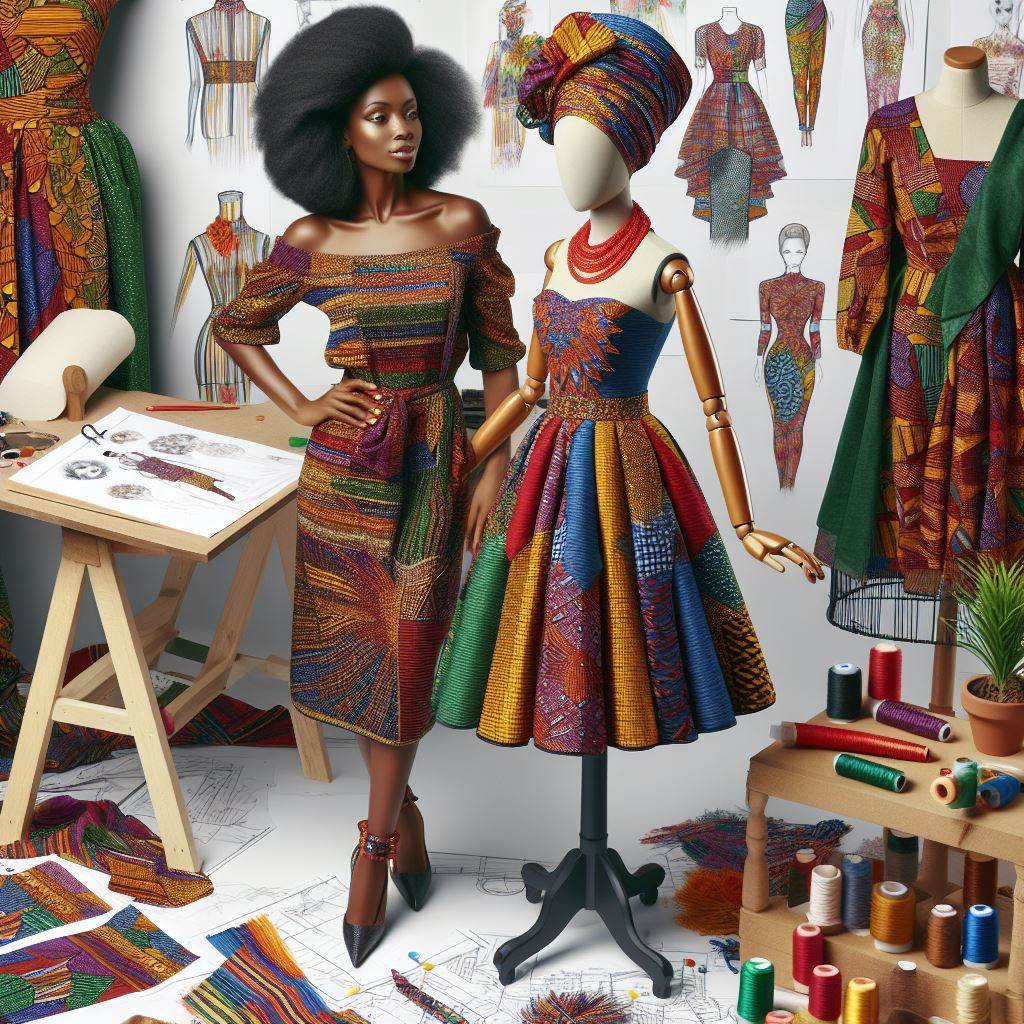
Gain More Insights: Student Experiences in Nigerian Political Studies
You Might Also Like: Famous Nigerian Art Institutes and Galleries
You Might Also Like: Online Music Courses Available in Nigeria
Explore Further: Best Private Music Academies in Nigeria
Explore Further: Top Universities Offering Anthropology in Nigeria
Consumer awareness and education
In sustainable fashion, consumer awareness and education catalyze transformative change across Nigeria’s fashion landscape as pivotal pillars.
Empowering consumers with knowledge about sustainable fashion practices fosters responsibility and drives demand for eco-friendly products.
Transform Your Career with Expert Guidance
Get personalized mentorship consulting that’s tailored to your unique path. Our expert advice is actionable and exclusive.
Get StartedImportance of Educating Consumers on Sustainable Fashion
The significance of educating consumers on sustainable fashion cannot be overstated.
Awareness campaigns inspire conscious decision-making and foster accountability among consumers by providing information about fashion’s impacts.
Informed consumers advocate for sustainability, driving demand for eco-friendly alternatives and encouraging brands to adopt ethical practices.
Ways to Raise Awareness About Sustainable Fashion in Nigeria
In Nigeria, there exist a myriad of avenues through which to raise awareness about sustainable fashion.
Leveraging the power of social media, fashion brands and advocacy groups can launch targeted campaigns to disseminate information and promote eco-friendly practices among consumers.
Collaborations with influencers and celebrities can amplify messaging and reach wider audiences, sparking conversations about sustainability and driving engagement.
Furthermore, organizing workshops, seminars, and educational events can provide platforms for in-depth discussions about sustainable fashion principles and practices.
These initiatives inspire and empower individuals to embrace sustainable fashion choices by inviting industry experts to share insights.
Partnerships with educational institutions integrate sustainability into fashion curricula, equipping aspiring designers with eco-friendly knowledge and skills.
Encouraging a Shift Toward Sustainable Fashion Consumption
Encouraging a shift towards sustainable fashion consumption requires concerted efforts from all stakeholders, including fashion brands, policymakers, and consumers themselves.
Brands can lead by example, prioritizing transparency and ethical practices in their operations, and offering eco-friendly alternatives to traditional fashion products.
By promoting sustainable options and highlighting their environmental and social benefits, brands can incentivize consumers to make responsible purchasing decisions.
Moreover, collaboration with policymakers is essential to create an enabling environment that supports sustainable fashion initiatives.
Governments drive industry-wide change by developing policies incentivizing eco-friendly practices and penalizing unsustainable behaviors.
Ultimately, the transition towards sustainable fashion consumption is a collective endeavor, requiring collaboration, innovation, and commitment from all stakeholders.
Raising awareness, educating consumers, and fostering partnerships allow Nigeria to chart a course towards a greener fashion industry.
Read: Developing Critical Thinking in Language Arts
Learn More: Role of Psychologists in Nigerian Healthcare
Find Out More: Importance of Location Scouting in Nigerian Films
Explore Further: Art as a Tool for Education in Nigeria
Delve into the Subject: Cultural Studies in African and Asian Studies Programs
Government Support and Policies
In the realm of sustainable fashion in Nigeria, governmental support stands as a linchpin, wielding the potential to catalyze transformative change across the industry.
The government wields influence by formulating and implementing strategic policies to foster sustainability in the fashion sector.
Government Initiatives Promoting Sustainable Fashion
To evidence its commitment, the Nigerian government initiates programs and incentives incentivizing eco-friendly practices in the industry.
Initiatives include financial assistance like grants and subsidies to support eco-friendly production and invest in sustainable technologies.
Moreover, the government undertakes awareness campaigns to educate consumers about sustainable fashion, stimulating demand for eco-friendly products.
Role of Policies in Fostering Sustainability in the Fashion Industry
Policies wield considerable influence in shaping the sustainability landscape of the fashion industry.
The government establishes frameworks through legislation and regulations, mandating ethical sourcing practices and regulating waste management.
Furthermore, policies can facilitate collaboration between stakeholders, fostering partnerships that drive innovation and promote best practices in sustainability.
Strategic policymaking enables the government to create an enabling environment for businesses to integrate sustainability.
Opportunities for Collaboration Between the Government and Fashion Industry
Collaboration between the government and the fashion industry represents a fertile ground for synergy and mutual benefit.
Stakeholders leverage partnerships to tackle challenges and capitalize on opportunities in sustainable fashion.
The government supports sustainability initiatives in the fashion sector, providing resources and expertise. Industry players inform policymaking with insights and innovation.
Together, stakeholders co-create solutions balancing environmental imperatives with economic growth, fostering a sustainable fashion ecosystem in Nigeria.
Collaboration between the government and the fashion industry holds immense potential for driving sustainable change. It propels Nigeria towards a future where fashion thrives in harmony with the planet and its people.
Stakeholders realize a vision of sustainability through concerted efforts, transforming the industry for society and the environment.
Find Out More: How to Start a Blog as a Mass Communication Student
Conclusion
Recapping key points: Nigeria’s fashion landscape undergoes a transformative shift towards sustainability, emphasizing ethical practices and environmental consciousness.
We’ve delved into various trends and practices that are driving this change, from eco-friendly materials to innovative production processes.
Call to action: As consumers and industry stakeholders, it’s crucial for us to actively promote and support sustainable fashion in Nigeria.
Start by embracing eco-friendly brands, advocating for transparency in the fashion supply chain, and making informed purchasing choices.
By collectively demanding sustainable practices, we can drive positive change and contribute to a more responsible and ethical fashion industry in Nigeria.
Future outlook: Looking ahead, the future of sustainable fashion in Nigeria holds great promise.
With increasing awareness and commitment to eco-conscious practices, we can expect to see continued growth and innovation in this space.
As consumers become more informed and engaged, sustainable fashion will continue to gain momentum, shaping a brighter and greener future for the industry in Nigeria and beyond.

